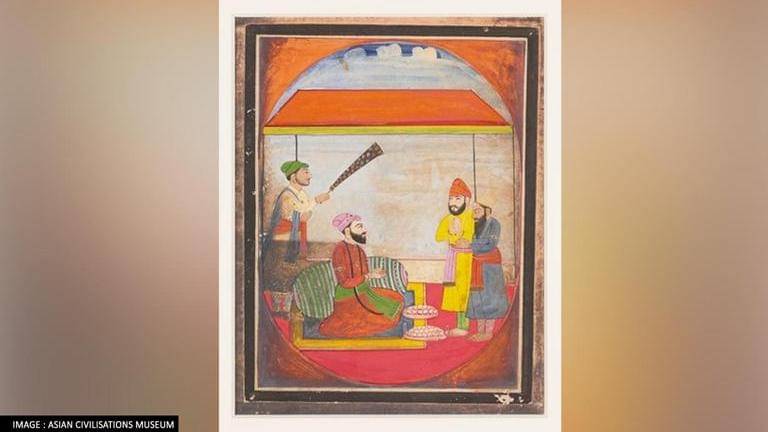
- Select a language for the TTS:
- UK English Female
- UK English Male
- US English Female
- US English Male
- Australian Female
- Australian Male
- Language selected: (auto detect) - EN
Play all audios:
Round one in the case of the Duchess of Sussex versus Associated Newspapers has gone to the Duchess. At Thursday’s hearing in the High Court, Mr Justice Warby not only found the _Mail on
Sunday _guilty of breaching the former Meghan Markle’s privacy by publishing her letter to her father, but also her copyright. In what is being hailed as a landmark in the emergence of
judge-made law to protect the private lives of celebrities, the judge also ruled that the case should not go to a full trial because there was “no prospect that a different judgement would
be reached”. Many people will find this outcome quite troubling, if they are not indeed thoroughly baffled by it. Why did Mr Justice Warby find the newspaper guilty of breach of copyright,
when they had been shown Meghan’s letter by its recipient, her father Thomas Markle? Surely the letter was his to disclose? This is a point that is often misunderstood. A letter does indeed
belong to the person who receives it — but only the document. Copyright in its contents remains with the sender. In practice, a lawsuit for breach of copyright alone would not have been
worthwhile for the Duchess. Thanks to the growing body of case law in favour of privacy, however, she had an excellent chance of suing the _Mail _on both counts. Hence the gloating of her
lawyers over their “comprehensive win”: the objective fact that publication of her letter infringed Meghan’s copyright added weight to the more subjective ruling on her privacy. Yet the
Associated Newspapers had good grounds for publishing this “long-form telling off” by the daughter of her father. There is great public interest in the Markle family, not only because it is
connected by marriage to the House of Windsor, but because both the Sussexes are public figures in their own right, who regularly pronounce on controversial issues and court publicity
whenever it suits them. If, as Thomas Markle told the court, the letter in question “signalled the end of our relationship”, surely there was a public interest defence in publication? At
least, that disputed question ought to have been tested in open court, rather than decided by summary judgement. By foreclosing the matter without a trial, Mr Justice Welby has protected not
only the Duchess but also the Palace from unwelcome scrutiny. Four royal officials who were working for the Sussexes at the time are reportedly prepared to testify. Under cross-examination,
the truth would have emerged about whether Meghan engaged their help in drafting the letter to her father, as the _Mail _claims. If they did so, then it seems probable, to say the least,
that she expected its contents to be published. That finding would seriously undermine her case. Indeed, the judge implied as much, though he argued that even if true, it would merely affect
the level of damages. Here Mr Justice Warby is surely mistaken. If it could be proven that Meghan and her staff drafted a letter to her father, while briefing that it was a gesture of
reconciliation, knowing that he would be likely to react angrily and publish it, then her action in the High Court would appear to the public in a wholly different light. In fact, it would
seem more like a conspiracy to take revenge on her father, who had just suffered a heart attack (a fact that went unmentioned in the letter). Her whole case would be revealed as an
opportunistic plot to close down legitimate criticism and scrutiny. Few would sympathise with a hypocritical, litigious and avaricious Duchess who used an ailing parent to silence and
penalise the press. In other words, the public interest — and not merely the interest of the public — would have been served better if Mr Justice Warby had allowed this case to go to trial.
Perhaps the _Mail on Sunday _will appeal against his judgement, though they will have to persuade the judge to give them leave to do so. The case already promises to be expensive and only a
wealthy organisation — as Associated Newspapers fortunately is — could contemplate the risk of pursuing it any further. But there is an important principle at stake here: do we want to go
down the route of a burgeoning privacy law that not only royals (and ex-royals) but anybody in public life can take advantage of to hide their misbehaviour in private, or even worse
misconduct? Our legal establishment seems to have made up its mind that the answer is yes. But lawyers have an interest in lucrative new fields of litigation. The general public may take a
different view. The arguments should be tested, not only in the courts, but also in Parliament. A balance must be struck. Too lax an attitude to privacy can lead to tragedies such as that
of Diana, Princess of Wales. Too strict a law of privacy would have a chilling effect on the freedom of the press. That balance should be found with the public interest foremost, not as an
afterthought. A judge may grant the Duchess her triumph over the press, but the law should not deny the public interest its day in court. A MESSAGE FROM THEARTICLE _We are the only
publication that’s committed to covering every angle. We have an important contribution to make, one that’s needed now more than ever, and we need your help to continue publishing throughout
the pandemic. So please, make a donation._









